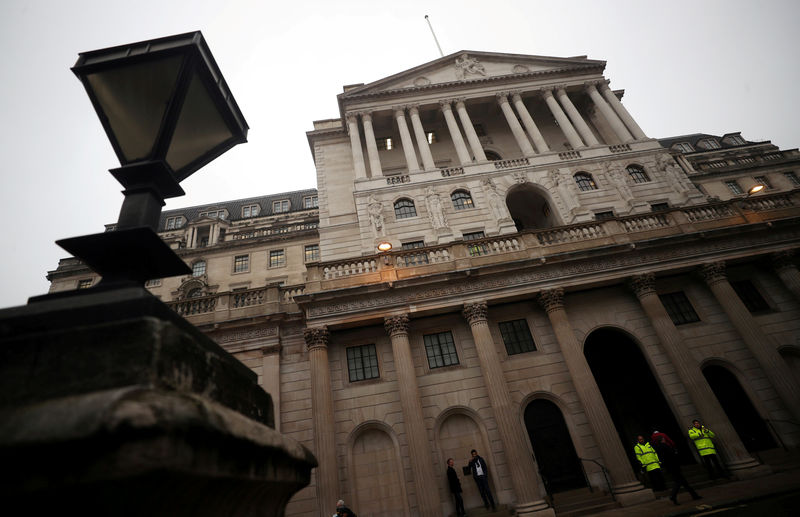 © Reuters. FILE PHOTO: FILE PHOTO: The Bank of England is seen in London
© Reuters. FILE PHOTO: FILE PHOTO: The Bank of England is seen in LondonBy Huw Jones
LONDON (Reuters) – Britain’s top banks like HSBC (L:) and Barclays (L:) will have to show investors how they can be shut without causing mayhem in markets, the Bank of England said on Tuesday.
Since a financial crisis that forced taxpayers to bail out lenders, banks have had to comply with rules that make it easier for regulators to wind them up in an orderly way, such as by keeping critical functions like payments going and transferring accounts to another lender.
These so-called resolution or “death” plans are drawn up in conjunction with regulators but are not published.
BoE Deputy Governor for Financial Stability Jon Cunliffe said on Tuesday he wants to inject transparency into resolution planning so that markets have more confidence in the process.
The BoE will launch a public consultation later in the year on requiring top banks to conduct a self-assessment of how they measure up against British and international resolution rules, he said.
The BoE will publish its own assessments of resolvability for the major UK banks, he said.
“In a similar vein the Bank envisages we may require that elements of firms’ self-assessments are made public – this would enable their progress on resolvability to be made more transparent,” Cunliffe said.
It is anticipated that firms would submit the first round of self-assessments from 2020.
This would give banks enough time to reflect Britain’s departure from the European Union next year, and a requirements from the start of 2019 to “ring fence” their retail arms with extra capital.
“We should be clear that resolution will not be some painless magic bullet. No matter how well prepared in advance, the resolution of a major bank, if it happens, would be a painful, protracted, and probably litigious, affair,” Cunliffe said.
“We now have made means that we have options today to deal with a failing bank that we simply did not have 10 years ago. The choice is no longer solely between a disruptive insolvency that damages critical economic functions or bailing out the bank’s creditors at taxpayer expense.”
Britain’s government began on Tuesday to sell its majority stake in Royal Bank of Scotland (L:), acquired during a taxpayer bailout during the financial crisis.
Fusion Media or anyone involved with Fusion Media will not accept any liability for loss or damage as a result of reliance on the information including data, quotes, charts and buy/sell signals contained within this website. Please be fully informed regarding the risks and costs associated with trading the financial markets, it is one of the riskiest investment forms possible.
Source: Investing.com





























